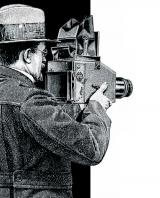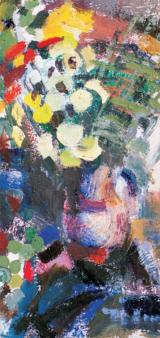The fine art collection on display on the first floor of the main building of the Herman Ottó Museum consists of paintings by every outstanding Hungarian visual artist. The visitors will see paintings, statues, drawings and graphics in this room. In addition to these, rare applied art items are also shown. The permanent exhibition renewed in 2005 is made of 200 works from the 1700s to the middle of the 20th century.
The organizers intention was to show great eras in the history of Hungarian painting, from the Baroque to the Avant-garde. Besides the statues and paintings, the applied art pieces create intimate interaction between space and works of art.
Ever since the establishment of the Herman Ottó Museum in 1899, it has collected works of art by visual artists. By now, the collection consists of over 16000 items. The museum, then Public Education and Museum Society of Borsod-Miskolc purchased the first paintings by Pál Szinyei Merse and Adolf Fényes. The material of the first exhibition the museum presented already contained fine art.
In the first decade, museum employees mostly collected visual art about towns and the county. Travelling exhibition arrived in Miskolc from Upper Hungary with the best period contemporary works of art thanks to the tireless work of Bertalan Balogh.
Nagybánya spirit soon took its place on the art scene of Miskolc. On account of this, an artist colony started in Miskolc in 1921. Works of art by artists who worked at the colony often ended up in the museum collection that was made up of 279 items in 1953. Soon after, as the result of municipal and county patronage, a growth that had not been experienced before took place.
In 1974, the municipal art gallery united with the fine art collection of the Herman Ottó Museum. Later on the museum acquired a number of heritages of significance that resulted in the museum becoming one of the most important art galleries in Hungary. In 1975 the State of Hungary bestowed the heritage of the young deceased artist Béla Kondor to the Herman Ottó Museum. In 1977, the heritage of the painter László Ficzere of Miskolc was added to the collection.
Taking over the representative painting and statue collection of one of the greatest Hungarian private collectors, Dr. Sándor Petró, meant a milestone in the history of the museum. With the Petró collection included in its material, the museum was ready to organize a representative exhibition presenting the most important paintings by Hungarian artists of the past 200 years. In addition to some furniture, ceramics and glasses, a collection of rugs from the east and a pillbox collection demonstrate real artistic value.





